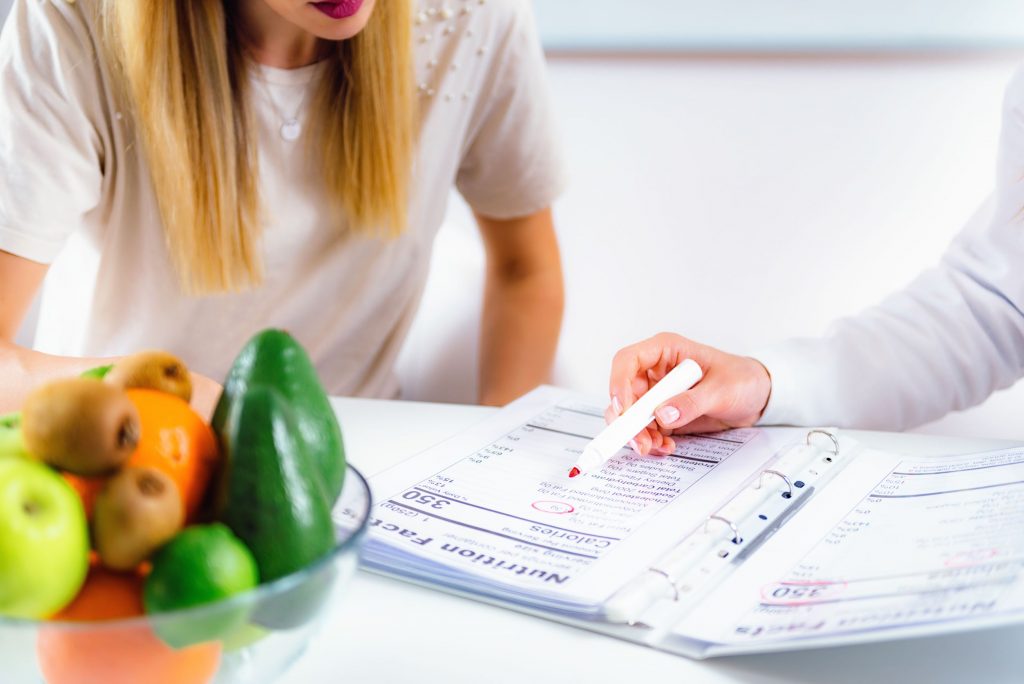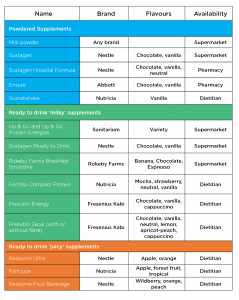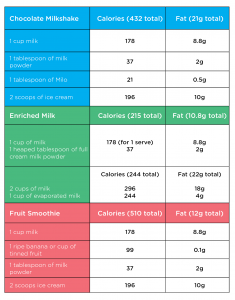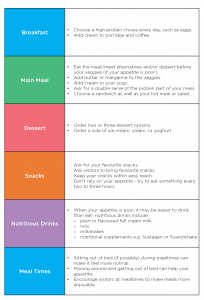Weight Management
It is important for people with CF to maintain a healthy weight to optimise lung function and overall health. Undernutrition is common in CF, with many barriers to adequate nutrition such as increased nutrient needs, reduced ability to digest food, loss of appetite, gastrointestinal symptoms and more.
Whilst traditionally the focus has been around nutrition support for weight gain, there is an emerging issue of overweight and obesity in the CF population. Overweight and obesity in CF, can be partially attributed to treatment advances and new modulator drugs, in addition to the increasing prevalence of obesity in the general population.
With improving life expectancies, it is important to consider the long-term impacts of being overweight, which may include heart disease, high blood pressure and sleep apnoea.
It is important to monitor your weight at clinic appointments and work with your CF dietitian to help you achieve and maintain a healthy weight. They can help you set goals, create a healthy meal plan and work with the physio to make sure you are getting enough exercise, and that your diet supports this.
Reaching Your Goal Weight
For some people with CF, achieving and maintaining a healthy weight can be a challenge. Your dietitian can help by assessing various aspects of your diet, including energy intake and dietary patterns, enzyme dosage, use of nutritional support, food and nutrition related knowledge, energy demands from illness, exercise and more.
They can also screen for comorbidities which may contribute to undernutrition, such as cystic fibrosis related diabetes (CFRD), bowel issues including irritable bowel syndrome and DIOS, liver disease, coeliac disease, hyperthyroidism and much more.
Being underweight can be caused by many factors so a whole team approach is best. Your dietitian will work alongside your CF team, including respiratory physician, gastroenterologist, endocrinologist, psychologist, social worker and physiotherapist to help create a plan.

Foods to Assist with Weight Gain
Eating foods which are higher in calories can help in gaining weight. Adding fat to your meals will increase the number of calories without having to increase how much food you eat. This is known as ‘boosting’ the calories in your food.
It is still advised to aim for healthier fat options as much as possible.
Here are some tips to boost your daily energy (calorie) intake:
- Eat high energy foods and drinks e.g. full cream dairy products (yoghurt, milk, cheese, yoghurt, cream and ice-cream), butter, margarine, salad dressings, oils, meat, chicken, fish, eggs, nuts and seeds, and nourishing drinks (see below).
- Avoid ‘low fat’, ‘low calorie’ foods.
- Eat more often- aim to eat six small meals rather than three large meals during the day if appetite is reduced.
Nourishing Drinks
Nourishing drinks can be incorporated into your diet in addition to food, to further boost energy intake. They come in both powder and ready-to-drink forms and are generally available in supermarkets or pharmacies. Nourishing drinks should not be used to replace meals, instead as a mid-meal snack or alongside a meal.
Here are some examples of nourishing drinks available in the community:

You can also make homemade nourishing drinks:

If you are finding it difficult to gain or maintain your weight within a healthy range, your dietitian may recommend a specialised nutrition supplement. These specialised nutrition supplements are high in energy (calories) and protein. If you think you may benefit from including specialised nutrition supplements in your diet, speak to your dietitian about the right choice for you and how to access them.
Supplemental Feeding
Supplemental feeding may be required if you’re unable to gain weight and reach your energy requirements via regular diet. Supplemental feeds deliver extra calories directly into the stomach via the nose (nasogastric tube) or abdomen (Percutaneous Endoscopic Gastrostomy, or PEG). They can be administered at differing times of the day, including overnight, allowing you the freedom to enjoy normal meals and activities during the day. Enzymes are still needed to digest and absorb the nutrition provided from the tube feeds. Some people gain enough weight, and the tube can be removed.
Eating When Unwell
When you are unwell your body needs a lot more energy than normal, even though you might not feel like eating. In times of illness, you may lose your appetite, food might not taste the same or you might feel constantly full. However, it is important to remember that food plays a very important role in your recovery, and in fact your body needs MORE food when you are unwell. Think of food as a fuel for your body or as a medicine as part of your treatment.
Loss of Appetite
To increase your appetite, you can try the following:
- Eat something every couple of hours during the day, think small and frequent eating.
- Eat by the clock.
- Serve food on a small plate, as a large full plate may be off putting.
- Gentle physical activity can stimulate appetite- try taking a short, gentle walk around the block (if able).
- Enjoy meals with family and friends.
Nausea
To combat nausea, you can try the following:
- Do not skip meals- an empty stomach can make nausea worse.
- If the smell of food cooking causes nausea, try and stay away from the kitchen- have other family members/roommates cook for you if possible, or order in.
- Use mouth rinses and washes or try sucking on sugar free hard-boiled lollies or peppermints to reduce bad mouth tastes.
- Try not to lie down or lean your chair back during, and for at least 30-60 minutes, after eating.
Snack ideas for managing nausea:
- Try cold or room temperature foods as these do not taste or smell as strong e.g. sandwiches, salads, custard, mousse, yoghurts, tinned fruit or jelly.
- Snack on dry foods e.g. biscuits, noodles, cereal, toast or crackers.
- Eat salty foods e.g. clear soup and potato crisps may help.
- Drink cold clear fluids between meals e.g. cordial, lemonade, dry ginger ale or fruit juice.
- Try ginger containing foods e.g. ginger beer, ale, tea or candied ginger.
- Try not to eat fatty, rich, spicy or very sweet foods if you find they make your nausea worse.
- You may find softer foods which require less chewing easier to eat.
Admissions
During hospital admissions, it is important to eat well and maintain your weight. The dietitian will visit you during your admission to help with achieving optimal nutrition intake during your inpatient stay.
Here are some tips to manage your weight during an admission:

You can also order an inpatient Hospital Food bag from CFWA where you can select snacks and drinks to suit your taste and nutritional needs. Click here to order.